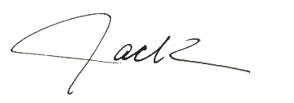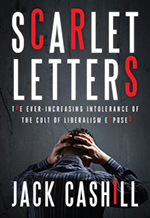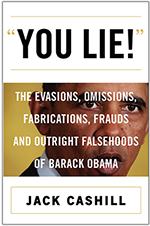No Cats Killed in Bloch School Scandal
Jack Cashill's newest book will be out August 4th:
“Scarlet Letters: The Ever-Increasing Intolerance of the Cult of Liberalism Exposed"
![]()
© Jack Cashill
Published in Ingramsonline.com - March 2015
In the first month or so of 2015, readers of The Kansas City Star received updates, daily or close to it, on two scandals, one national, one local. Both involved the inflation of things—footballs in New England and academic rankings at UMKC’s Henry W. Bloch School of Management. However wrong the behavior of the respective principals, neither involved the killing of cats—and more on that in a minute.
If in New England the jury still seems to be out on the Patriots’ guilt or innocence, in Kansas City, the verdict seems to be in. The resignation of Michael Song, former director of the Regnier Institute for Entrepreneurship and Innovation at UMKC, suggests that the Bloch School is guilty as charged.
Song took the fall for submitting inflated data when applying for rankings and awards from national organizations. His undoing was that UMKC did too well and was tagged by the Journal of Product Innovation Management (JPIM) as being No. 1 in the universe in innovation-management research.
The JPIM, of course, is a must-read at the Cashill household. Isn’t it at everyone’s? The moment I saw the ranking my eyes bugged, but then again the moment I see any ranking of anything, I’m suspicious. Forbes, for instance, assures me that Rockhurst is the 259th best college in the country, but that William Jewell is the 330th. What does that tell me? Nothing, except that Forbes has found a way to make money by calculating the obviously incalculable. Besides, in most of these competitions, applicants finesse the data to make the best impression. The judges expect them to. The citizenry knows they do. It is called public relations.
This very article is not without bias. I know—a shocker. A few years ago, working with Outpost Worldwide, I co-produced the documentary No Shortcuts: The Entrepreneurial Life of Henry Bloch. In the course of this project, I spent a fair amount of time with the Bloch family, and if Henry isn’t the most honorable businessman in recent American history, I don’t who is.
I also got to know the Bloch School’s former dean, the dynamic Teng-Kee Tan, who commissioned the project, and I met Michael Song. In the course of our work, we got to see several of the entrepreneurial programs at the Bloch School in action and interview many of the participants.
One program that impressed me was called the Regnier Family Foundation’s Venture Creation Challenge. In this competition, teams of would-be entrepreneurs from throughout UMKC—business, engineering, science, medicine, law, liberal arts—presented the business plans they had developed and the products they had created to well-qualified judges, Henry Bloch among them. Several of the judges were potential investors.
These efforts were real and tangible. I took particular heart in watching this contest unfold because it showed the economic good that a university could produce when its leaders focused on projects of value. The Star has repeatedly questioned how much good. In fact, its reporters have had great sport mocking the gravely ill Teng-Kee for his claim that each newly-minted entrepreneur was expected to create 512 jobs on average in his or her lifetime. The Star called the number “somewhere between misleading and bogus.” I’d call it a classic SWAG estimate—a sophisticated wild-ass guess—as should have been obvious to everyone who heard it.
Unlike much academic SWAG, however, Teng-Kee’s was inconsequential. A few years back, for instance, former vice-president Al Gore predicted that the Arctic sea ice would be completely gone by now. It isn’t. As of January, Arctic sea ice covered roughly a third more of the earth than does the United States, Alaska included.
One could perhaps forgive Gore on his misjudgment as he had put his faith in the famous “hockey stick” graph produced by various academics later busted in Climategate, another inflation scandal, this one dealing with temperatures and costing the world billions in wasted resources. Gore, by the way, won a Nobel Prize for his predictive powers. And we’re embarrassed by UMKC’s JPIM standings?
Climategate did not surprise those familiar with the contemporary academy. Too much of the research done by American universities is either frivolous or fraudulent or both, which is why the Bloch School struck me as such a healthy departure from the norm. That norm, by the way, is well-represented on the UMKC campus by the university’s other outpost of business-oriented research, the Economics Department.
At about the same time we were recording the Bloch School’s entrepreneurial programs, the Econ Department was showing that its campus-wide reputation for Neo-Marxism was well-deserved. No parlor pinks, at least a few econ professors and the UMKC Institute for Labor Studies, a program within the department, took the lead in the ditzy and derivative “Occupy Kansas City” Movement.
The impressionable mush-heads of the UMKC Economics Club manned the barricades as well. These students were likely part of a “standing-room-only-crowd” at UMKC in November 2011 that heard Associate UMKC Professor Bill Black rally the troops. According to a brief history of that event, “With an honesty he has come to be known for in his speeches, Bill Black discussed the lies and agendas of the banking class.” (Hear that, bankers?) Still, for all its pointless wheel spinning, Occupy KC resulted in no known cat deaths.
That honor would fall to UMKC’s Institute for Labor Studies, which has since the cat incident changed its name to “Worker Education and Labor Studies.” To be fair, program head Judy Ancel did not personally kill any cats herself—at least that I know of. She merely cited cat-killing as a strategy.
In a course Ancel co-taught with a Missouri-St. Louis professor via video link, she told her students that in labor disputes, “Violence is a tactic, and it’s to be used when it’s appropriate, the appropriate tactic.” That violence apparently includes anti-cat violence.
Ancel endorsed the actions of a striking Peruvian union that “succeeded in putting cats in powerhouses, and the cats—don’t think about the cats, OK? — the cats would run around inside and short out the system and cause blackouts.” She observed that the blackouts gave the workers some negotiating leverage and better yet “got rid of feral cats.”
Would that feral academic departments be as easily dispensed with.





